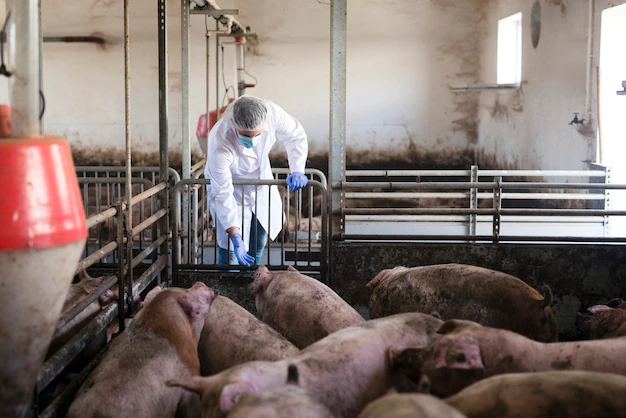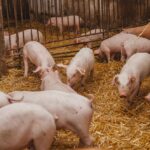Animal feed processing equipment plays a crucial role in livestock nutrition by ensuring that animals receive balanced and nutritious feed. Here are some key reasons why animal feed processing equipment is important in livestock nutrition:
- Feed Quality and Consistency: Animal feed processing equipment helps to produce high-quality feed with consistent nutrient content. This is important because the nutritional composition of the feed directly affects the growth, health, and productivity of the animals. The equipment ensures that the feed ingredients are properly mixed, ground, and processed to create a uniform and well-balanced feed.
- Nutrient Availability and Digestibility: Livestock require specific nutrients, such as proteins, carbohydrates, fats, vitamins, and minerals, for their growth, development, and overall health. Feed processing equipment helps enhance the availability and digestibility of these nutrients by breaking down complex feed ingredients and improving their bioavailability. For example, grinding or pelleting feed can improve digestibility by reducing particle size and breaking down anti-nutritional factors.
- Feed Safety and Hygiene: Animal feed processing equipment helps maintain feed safety and hygiene standards. It can effectively clean, sterilize, and eliminate pathogens, molds, and toxins that may be present in the feed ingredients. Proper processing and storage techniques can prevent the growth of harmful microorganisms and minimize the risk of feed contamination, thus ensuring the health and well-being of the animals.
- Feed Efficiency and Cost Reduction: Efficient feed processing equipment can optimize feed utilization and conversion, leading to improved feed efficiency. By finely grinding the feed ingredients or using pelleting technology, the animals can extract more nutrients from the feed, reducing wastage and maximizing nutrient absorption. This increased feed efficiency not only benefits the animals’ health but also helps reduce overall feed costs for livestock producers.
- Customization and Flexibility: Different animal species, production stages, and specific nutritional requirements demand tailored feed formulations. Animal feed processing equipment allows for customization and flexibility in feed production. It enables the adjustment of ingredient proportions, particle size, and feed formulations to meet the specific nutritional needs of different livestock species, such as poultry, swine, cattle, or aquaculture.
- Feed Preservation and Shelf Life: Proper processing techniques, such as drying, cooling, and pelleting, can improve feed preservation and extend its shelf life. These measures help prevent spoilage, maintain nutrient integrity, and reduce feed wastage. By ensuring feed freshness and quality, animal feed processing equipment supports consistent and reliable nutrition for livestock.
In summary, animal feed processing equipment is crucial for livestock nutrition as it contributes to feed quality, nutrient availability, feed safety, feed efficiency, customization, and feed preservation. By using these equipment, livestock producers can provide their animals with well-balanced, nutritious feed, leading to improved growth, health, and productivity in the livestock industry.
Join 'Farmers Mag' WhatsApp Channel
Get the latest Farming news and tips delivered straight to your WhatsApp
CLICK HERE TO JOIN






